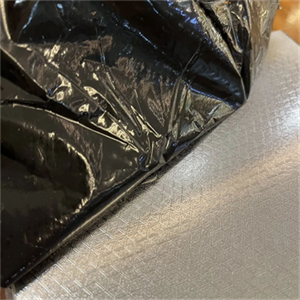How to accurately select the temperature for titanium alloy forging
What is the appropriate forging temperature for titanium alloy? As an important engineering material, titanium alloy has been widely used in aerospace, medical equipment, chemical industry, and other fields because of its excellent mechanical properties and good corrosion resistance. In the processing of titanium alloys, forging is a crucial process, and the choice of titanium alloy forging temperature is directly related to the performance of titanium alloys and the quality of finished products. Today, the editor will take you to understand the appropriate forging temperature of titanium alloys.
What is the appropriate forging temperature for titanium alloy? As an important engineering material, titanium alloy has been widely used in aerospace, medical equipment, chemical industry, and other fields because of its excellent mechanical properties and good corrosion resistance. In the processing of titanium alloys, forging is a crucial process, and the choice of forging temperature is directly related to the performance of titanium alloys and the quality of finished products. Today, the editor will take you to understand the appropriate forging temperature of titanium alloys.

What is the temperature range of titanium alloy?
The forging temperature of titanium alloys is usually affected by their alloy composition, microstructure, and required properties. Generally speaking, the forging temperature range of titanium alloys is relatively wide, but the specific temperature selection needs to be determined according to the alloy type and forging requirements. Too high a forging temperature may cause the titanium alloy grains to become coarse and reduce its mechanical properties; while too low a forging temperature may cause the titanium alloy’s plasticity to decrease, making it difficult to form.
Therefore, determining the appropriate forging temperature is a key link in the titanium alloy forging process. When selecting the titanium alloy forging temperature, you first need to consider the phase transformation point of the alloy. The phase transformation point of titanium alloy is the temperature point at which its organizational structure changes significantly, which can usually be determined by thermal analysis and other methods. Forging near the phase transformation point is conducive to obtaining a fine-grain structure and improving the mechanical properties of titanium alloys.
In addition, the forging temperature should also consider the plastic deformation ability and work hardening degree of the titanium alloy. Forging at a temperature with good plastic deformation ability and a low degree of work hardening is beneficial to reducing energy consumption and improving production efficiency.
The forging temperature of titanium alloys is usually affected by their alloy composition, microstructure, and required properties. Generally speaking, the forging temperature range of titanium alloys is relatively wide, but the specific temperature selection needs to be determined according to the alloy type and forging requirements. Too high a forging temperature may cause the titanium alloy grains to become coarse and reduce its mechanical properties; while too low a forging temperature may cause the titanium alloy’s plasticity to decrease, making it difficult to form.
Therefore, determining the appropriate forging temperature is a key link in the titanium alloy forging process. When selecting the titanium alloy forging temperature, you first need to consider the phase transformation point of the alloy. The phase transformation point of titanium alloy is the temperature point at which its organizational structure changes significantly, which can usually be determined by thermal analysis and other methods. Forging near the phase transformation point is conducive to obtaining a fine-grain structure and improving the mechanical properties of titanium alloys.
In addition, the titanium alloy forging temperature should also consider the plastic deformation ability and work hardening degree of the titanium alloy. Forging at a temperature with good plastic deformation ability and a low degree of work hardening is beneficial to reducing energy consumption and improving production efficiency.


